In recent years, the interest in psychedelic therapy has grown exponentially, largely in part to the FDA granting two organizations (Compass Pathways in 2018 and Usona Institute 2019) “breakthrough therapy” designations to pursue the use of psilocybin, one of two the main hallucinogenic compounds in psychedelic mushrooms, for mental health applications.
If you’re here, you may be wondering what psilocybin therapy is, how psychedelics are being used in clinical applications, and what the future of this industry looks like.
Let’s explore together:
Understanding the legal barriers to psilocybin therapy
In 1970, psilocybin was classified as a Schedule 1 drug with other psychedelics. It remains at this classification today.
Schedule 1 Drugs are defined as drugs with no currently accepted medical use and a high potential for abuse. So the fact that the FDA has granted breakthrough therapy designations to explore its medicinal use is something that has caught the eye of mushroom and natural medicine enthusiasts around the world.
According to the FDA, a breakthrough therapy is defined as:
“Breakthrough Therapy designation is a process designed to expedite the development and review of drugs that are intended to treat a serious condition and preliminary clinical evidence indicates that the drug may demonstrate substantial improvement over available therapy on a clinically significant endpoint(s).
To determine whether the improvement over available therapy is substantial is a matter of judgment and depends on both the magnitude of the treatment effect, which could include duration of the effect, and the importance of the observed clinical outcome. In general, the preliminary clinical evidence should show a clear advantage over available therapy.” Learn more here.
Nearly 50 years since the classification which rendered psilocybin illegal, we now appear to be on the cusp of having it used as modern-day medicine.
It shines a positive light on the industry and proves the need to further explore the use of these compounds and how they can play a role in better health.
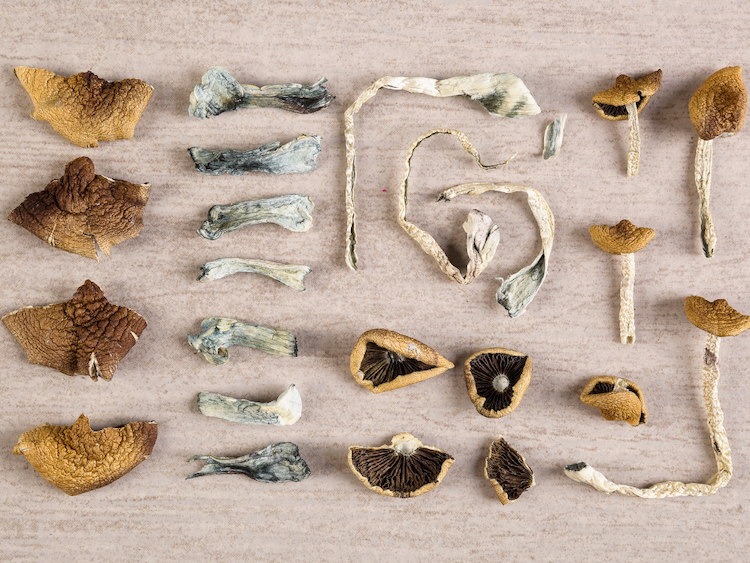
At this time, research is still limited as companies and organizations prepare to move through FDA approval with clinical trials and testing, but it’s important to be educated about the potential for the use of psilocybin, the barriers that this industry faces, as well as how it works.
PLEASE NOTE: Psilocybin and psychedelic mushroom use is still very much illegal on the federal level, although we have begun to see certain states deprioritize and decriminalize the compound for medicinal or religious use. You should consult your local laws before attempting the use of psilocybin or psychedelics.
For information on psilocybin legislation in your area, check out our database here.
What is psilocybin therapy?
Psilocybin therapy combines a psychedelic experience (using either psychedelic mushrooms or synthetic/concentrated psilocybin) with guided talk therapy from a clinical expert. Psilocybin therapy usually takes place in a relaxed, controlled, and comfortable setting. Patients are usually blindfolded and guided through their psychedelic experience in order to address concerns including PTSD, eating disorders, addiction, end of life, depression, or anxiety.
Comparing psilocybin therapy to other mind-altering substances
When it comes to using psilocybin as a therapy, it’s best to understand what it’s used for. In order to describe this process, it may be helpful to parallel this discussion with the cannabis industry and the use of medical marijuana.

The number one use for marijuana is pain control. From chronic pain, multiple sclerosis, and nerve pain, it has proven to be effective. Marijuana can act as a muscle relaxer and has been purported to help with nausea and weight loss.
Of course, there are other potential benefits from its use, like with patients with PTSD (post traumatic stress disorder) and anxiety, but the most common use is likely for its ability to help with physical conditions.
Psilocybin, on the other hand, is most commonly being researched for its effects on mental health, as an “estimated 26% of Americans ages 18 and older -- about 1 in 4 adults -- suffers from a diagnosable mental disorder in a given year.”
This ranges from major depression, bipolar disorder, obsessive compulsive disorder, post traumatic stress, substance abuse, and anxiety disorders.
And it’s certainly not a problem on the national level. It’s a global issue, with Our World in Data reporting:
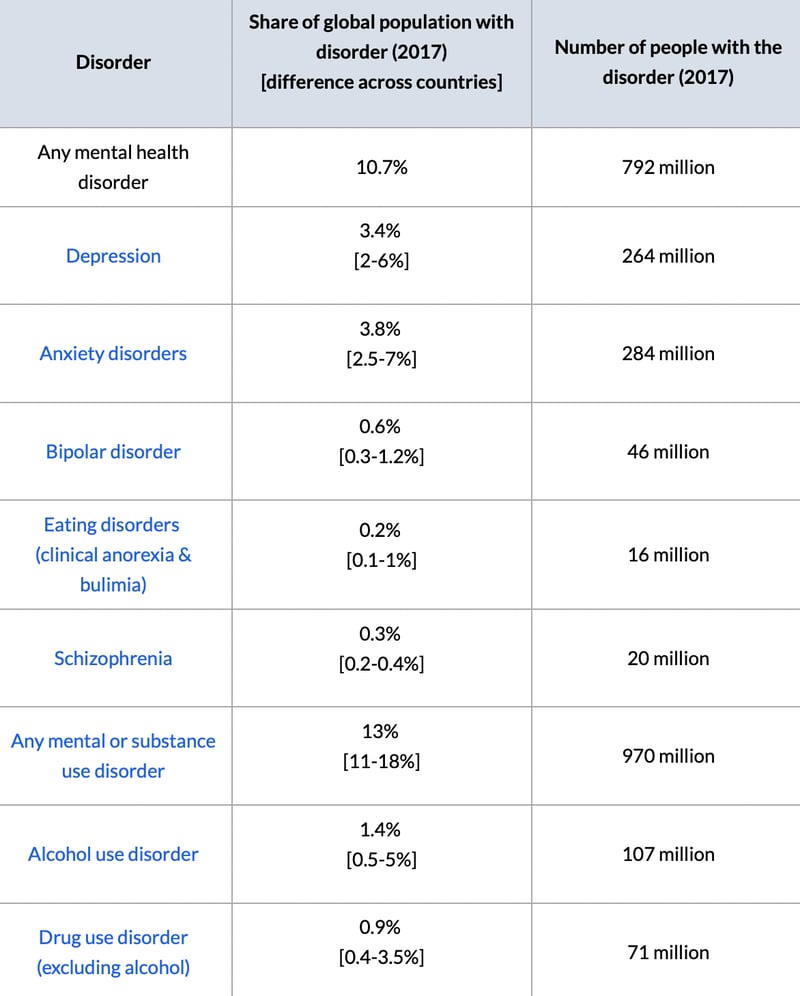
It’s 2023 now, and those numbers are expected to be much higher and continue to grow.
Which brings us to the demand of psilocybin therapy and the potential medicinal applications of “magic mushrooms”.
While advancements have been made in modern medicine for mental health conditions, treatments can be expensive.
They may require continuous use, have adverse side effects, and overall, are not as efficient as many would hope them to be.
In this day and age, companies strive to find alternative solutions that may limit the out-of-pocket costs for patients, and ultimately, work better than the current treatment offerings.
Remember, we’re just at the beginning of this evolution to explore psilocybin and magic mushrooms for its potential to help treat mental conditions.
We lean on companies and organizations that are actively working on this to law the foundation for what psilocybin therapy is and how it works.
How does psilocybin therapy work?
One thing we’ve heard over and over again is that there isn’t yet a standard or approved method of psilocybin therapy. And the approach can vary dramatically depending on the researcher or company you research.
With that in mind, let’s explore what we understand so far:
Compass Pathways is a respected leader in the psilocybin therapy space. Their view on psilocybin therapy is that “it combines the pharmacological effects of psilocybin, a psychoactive substance, with psychological support.”
In other words psilocybin therapy combines the use of a synthetic version of psilocybin, named COMP360 (the “drug”), paired with a licensed therapist for the monitoring of the patient being given the treatment (the “psychological support”).
Note that the current administration of psilocybin therapy does not include physical mushrooms. Some researchers, like Michael Pollen, speculate that other important mushroom compounds may be missing from the experience. But synthetic psilocybin is much easier to control in clinical trials and early-stage research. It is generally considered to be safe and delivers a similar experience to mushrooms.
This type of therapy is being researched for its applications in treating depression, which an estimated 300 million people worldwide suffer from.
But there are other potential applications for psilocybin therapy including addiction, anxiety, PTSD, and more.
If you’ve ever been to traditional therapy, or know someone who has, you’re familiar with the structure. You typically sit in a room and discuss your life with someone that has an unbiased opinion, who is licensed to provide that emotional support to understand and find resolve in your underlying issues/concerns.
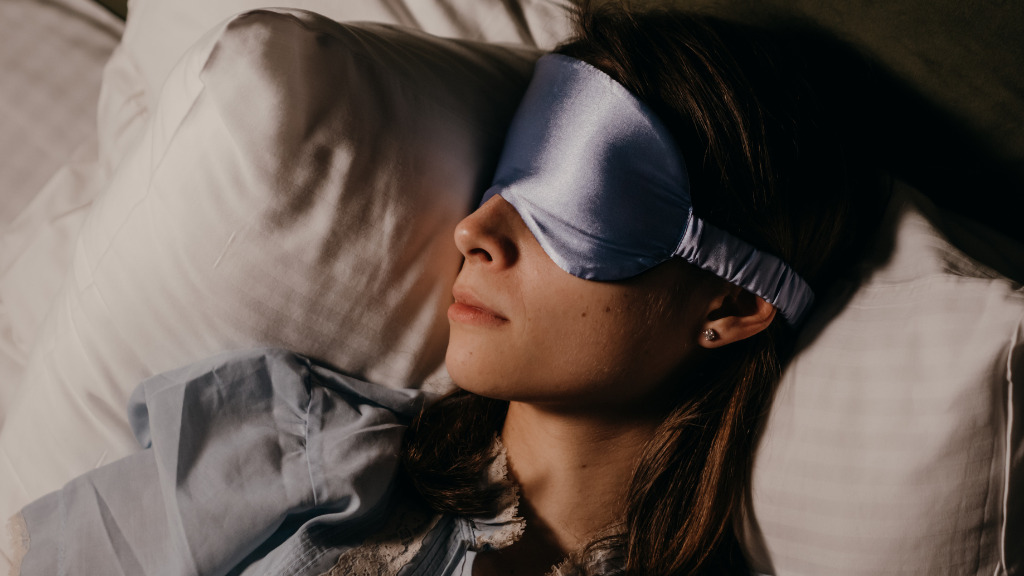
In the case with psilocybin therapy, rather than actively engaging in conversation, the patient is placed in a calming and comfortable room, often laying down on a couch or small bed, and given a curated playlist to help them focus on their internal wellbeing. The patient is typically blindfolded to reduce visual stimulation.
How long does psilocybin therapy last?
Compass Pathways suggests that their treatment typically lasts 6-8 hours with a therapist and assistant who stay with the patient to provide any support needed during the experience.
In other words, it’s a careful, structured process. And a lengthy one.
In many ways, this structure mirrors historical and Native applications of conscious-altering drugs. A guide helps you navigate your personal experience.
An expert is there to help to make sure it’s a positive experience. But most importantly, the guide knows how to redirect your thoughts or stabilize your feelings depending on how the session is going.
Upon completion of the treatment, it then shifts to a more traditional therapy session.

But in this case, the patients discuss their session right away, describing what they felt, what they saw, and have the opportunity to really dive into their personal experience.
Patients are encouraged to channel their own perceptions of what was meant by the session, coupled with the thought-provoking questions and guidance by a professional.
The most important takeaway here is that the sessions are long. They’re structured. They’re safe. They’re focused highly on set and setting. And they are paired with a licensed professional with a lot of experience in this area. That means your entire experience is monitored and guided. In other words, it’s not something you should attempt at home.
How many psilocybin therapy sessions are needed?
Not enough is known to have a clear answer to this. But early research shows significant promise after only a single session of professional (and highly-regulated) psilocybin therapy.
In one study, patients with depression saw significant results after just one psilocybin therapy session.
However, more sessions may be needed depending on the individual and the treatment plan.
Are magic mushrooms used in psilocybin therapy?
This is a common question. The answer is: no, not usually. Psilocybin was first isolated in 1958 by a chemist named Albert Hoffman. Many psilocybin therapy studies and trials use lab-generated psilocybin.
This allows the dosage to be carefully measured and administered.
Mushrooms themselves offer too many variables including the strain of mushroom, potency levels, freshness, and a variety of other factors - and thus are not ideal for clinical settings.
Psilocybin isn't the only functional or psychedelic compound in mushrooms. We still don't fully understand these compounds, or whether their absence from clinical studies impacts results one way or another.
Many psychedelic advocacy groups believe that the other compounds in the mushrooms themselves can have added benefits.
But specificity, accuracy, and tangibility are critical to the success, advocacy, and growth of clinical trials. So for now, psilocybin is usually administered by itself.
What does psilocybin therapy feel like?
It’s a question that many people ask. The experience is vasty different for every individual. Until you try it, it’s very difficult to articulate how it feels.
Psilocybin, the hallucinogenic compound in magic mushrooms, does exactly that. It creates a vivid hallucination, where, depending on the dose, patients given the compound may experience a sense of euphoria, relaxation, and surreal out-of-body experience.
The way psilocybin works is “by acting on pathways in the brain that involve the use of the neurotransmitter serotonin. This action results in changes in perception and altered consciousness.”
Basically, we think of it as a way to reprogram parts of the mind. Serotonin carries nerve signals between the mind and body. It can help with mood regulation, memory, and overall cognitive function. So you can see why psilocybin is being researched for its effects on mental health.
Psilocybin therapy patients may experience feelings of:
- Spiritual enlightening
- Hallucination
- Euphoria
- Altered perception (time, place, and objects)
- Separation from ego (the self)
In 2012, the first psilocybin MRI study was done which reported that, “Psilocybin acutely alters the functional connectivity of the claustrum with brain networks that support perception, memory, and attention.”
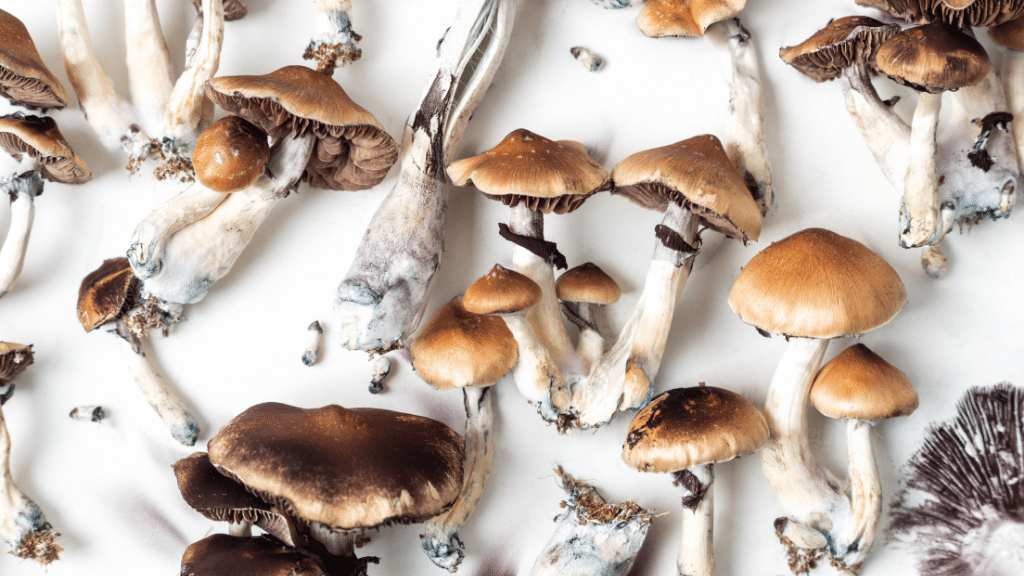
A rewiring of the brain, perhaps? The suggestive benefits of psilocybin and the use of psychedelic substances to potentially change and create new connections in the brain are what advocates believe is the primary reason for how it works. There is still so much to learn!
However, we do have some initial studies that weigh in on the potential benefits and applications of psilocybin therapy.
IMPORTANT NOTE: A successful session depends on a number of factors. Working with a trained professional in the right professional setting can help to reduce the likelihood of having a ‘bad trip’.
What are the potential benefits and applications of psilocybin therapy?
1. Depression
Approximately 100 million people in the world suffer with treatment-resistant depression, which means they have not responded to at least two antidepressant treatments for their major depressive disorder.
As discussed above, in 2018, Compass Pathways (CMPS) received FDA approval of a “breakthrough therapy” status for a psilocybin treatment they developed treatment-resistant depression.
In 2021, they announced Phase 2b results. Phase 2b is a study of a pharmaceutical product in human patients to determine efficacy and statistical trends prior to initiation of Phase 3 pivotal studies. It was done to provide further evidence into the use of the treatment with the objective to understand the correct dose before a larger, Phase 3 trial.
As reported by Compass Pathways, “233 patients enrolled in the study and were randomised and blinded into three arms comprising 79 patients for each of the 25mg and 1mg doses, and 75 patients for the 10mg dose. Patients were followed up for 12 weeks.”
The company stated in a press release in November of 2021, in conclusion, that the study “shows rapid and sustained response for patients receiving a single dose of COMP360 psilocybin with psychological support.”
It provided the groundwork to move forward with a Phase 3 trial.
A multi-center clinical trial led by COMPASS Pathways across 22 international sites including Institute of Psychiatry, Psychology & Neuroscience (IoPPN) at King’s College London and South London and Maudsley NHS Foundation Trust has found that:
A single 25mg dose of COMP360 psilocybin, alongside psychological support, had a significant impact in reducing symptoms of depression in participants with treatment-resistant depression. Keep Reading Here
But Compass Pathways is not the only company conducting studies on the use of psilocybin for the treatment of depression.
Johns Hopkins Center for Psychedelic and Consciousness Research conducted a study on 27 patients to evaluate the effects of a psilocybin treatment on major depressive order. The study gave two doses of 20mg and 30mg of psilocybin by capsule with water and reported that, “findings suggest that psilocybin with therapy is efficacious in treating MDD.”
Another trial was conducted on 26 patients and two doses were given of 10mg and 25mg, 7 days apart. It further reported that,
“Although limited conclusions can be drawn about treatment efficacy from open-label trials, tolerability was good, effect sizes large and symptom improvements appeared rapidly after just two psilocybin treatment sessions and remained significant 6 months post-treatment in a treatment-resistant cohort. Psilocybin represents a promising paradigm for unresponsive depression that warrants further research in double-blind randomised control trials.”
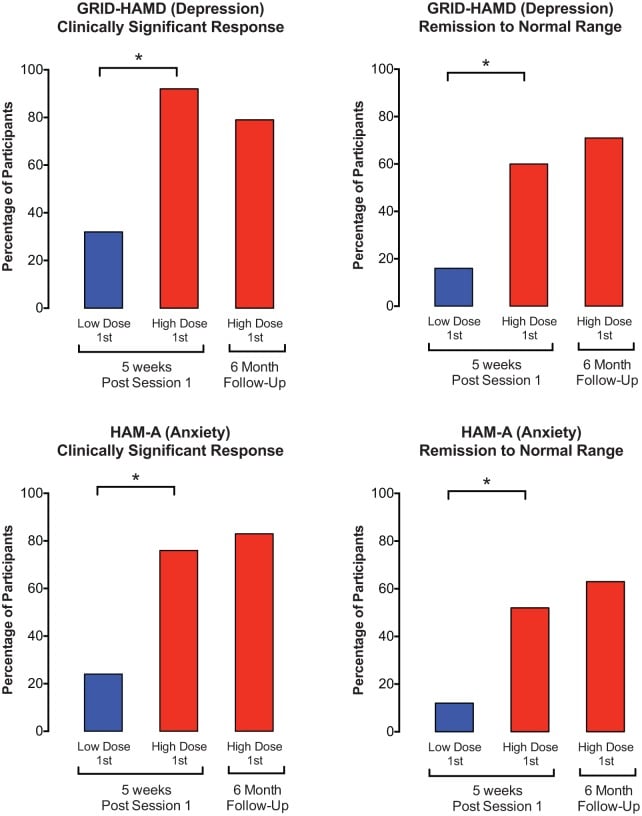
Image Source: J Psychopharmacol. 2016 Dec; 30(12): 1181–1197.
The use of psilocybin for mental health, including depression is still in its infancy, but progress is moving forward.
The Usona Institute, like Compass Pathways, also received “breakthrough therapy” status in 2019, and is currently recruiting patients into its Phase 2 trials.
Read our complete guide to psilocybin therapy for depression here.
2. Addiction (both smoking & alcoholism)
Recent studies, although minimal at this time, have been performed on the use of psilocybin to treat addiction, from smoking to alcohol dependency. Let's take a look at the studies for both.
Psilocybin therapy for smoking results
A 2017 study on 15 smokers (the patients) reported that the administration of psilocybin and cognitive behavior therapy, “in substantially higher 6-month smoking abstinence rates than are typically observed with other medications or CBT alone.”
At 12 months, 67% were abstinent from smoking. From longer-term follow ups with a mean of 30 months, 60% were still abstinent. This is statistically significant and what’s even more interesting is that “86.7% of patients rated their psilocybin experiences among the five most personally meaningful and spiritually significant experiences of their lives.”
The study suggested that those that showed that long-term abstinence had a “mystical experience” which may provide the foundation for why psilocybin may be an effective treatment for addiction and what could be the underlying cause of success.
The real fascinating part to this study, to us, and to those evaluating the effects of psilocybin in medicinal practice, is not just that the success rate was statistically significant, but that patients only received 2-3 doses.
Read our complete guide to psilocybin therapy for smoking here.
Psilocybin therapy for alcohol addition results
A 2015 study on 10, alcohol-dependent patients, stated that, “abstinence did not increase significantly in the first 4 weeks of treatment (when participants had not yet received psilocybin), but increased significantly following psilocybin administration (p < 0.05). Gains were largely maintained at follow-up to 36 weeks.”
The patients received 1-2 doses of psilocybin during therapy sessions. Again, very minimal as compared to current, ongoing drug treatments that may require daily use.
The patients received four weeks of therapy sessions (without psilocybin) and then were administered the drug in subsequent sessions.
“The intensity of effects in the first psilocybin session (at week 4) strongly predicted change in drinking during weeks 5-8 (r = 0.76 to r = 0.89) and also predicted decreases in craving and increases in abstinence self-efficacy during week 5.”
The trial was small, but provides foundation for the further research and continued studies on alcohol addiction.
Read more about psilocybin therapy for alcoholism here.
3. Post Traumatic Stress Disorder (PTSD)
High stress disorders, like those of PTSD, remain a global issue. And while we generally think of PTSD as heavily related to those that have served in the military, there is a larger population that will experience other events in their lives that lead them to this disorder. In fact, the National Center for PTSD reported that, “about 6 out of every 100 people (or 6% of the population) will have PTSD at some point in their lives.”
This is an alarming number, and with little, if any reliable treatments available, it can easily compound with other health-threatening issues, including but not limited to substance abuse, anger management, severe depression, and suicide.
The use of psychedelics for the treatment of PTSD has started, though is certainly in its infancy.
A 2013 study on mice provided an initial foundation. Basically, the study induced fear into mice by the use of an audio sound and then a shock. Through the administration of psilocybin, “it enhanced forgetting of the unpleasant memory associated with the tone.”
Dr. Sanchez-Ramos state, “the result suggests that psilocybin or similar compounds may be useful in treating post-traumatic stress disorder or related conditions in which environmental cues trigger debilitating behavior like anxiety or addiction.”
Of course, studies on mice are just a piece of the research. We need more clinical trials and human studies to determine and understand the efficacy of psilocybin treatment.
There are, however, studies that suggest psilocybin for its use in the treatment of PTSD.
A study was done on patients with advanced cancer to evaluate the effects of psilocybin on depression and anxiety. It was published in the Journal of Psychopharmacology in 2016. 29 patients were in the study, and they were given a one time treatment of psilocybin.
The mental anguish and distress of going through advanced-stage cancer is a severe feeling. In many cases, patients in this scenario can feel like there is no hope left. But in this study, 80% reported that it quickly brought relief from distress that lasted more than 6 months.
They cited a better quality of life, more energy, better relationships, and stronger work ethic.
This begins to shed light on other conditions psilocybin could be used as a treatment for, including PTSD.
Currently, there are some clinical trials starting to evaluate this further, including this one.
At Remeday, we keep tabs on all current and upcoming clinical trials so you can stay up to date and may even be a part of recruitment if you’re interested in participating. You can view those here.
We wrote a complete guide to psilocybin therapy for PTSD treatment here.
4. Existential anxiety
As mentioned, psilocybin treatment was used in multiple studies, including the one listed above, which was conducted on patients with advanced-stage, life threatening cancer and 80% of those in the study said it brought relief and a better quality of life.
The image below shows the study results for a variety of outcomes including depression, anxiety, mood, quality of life and death acceptance.
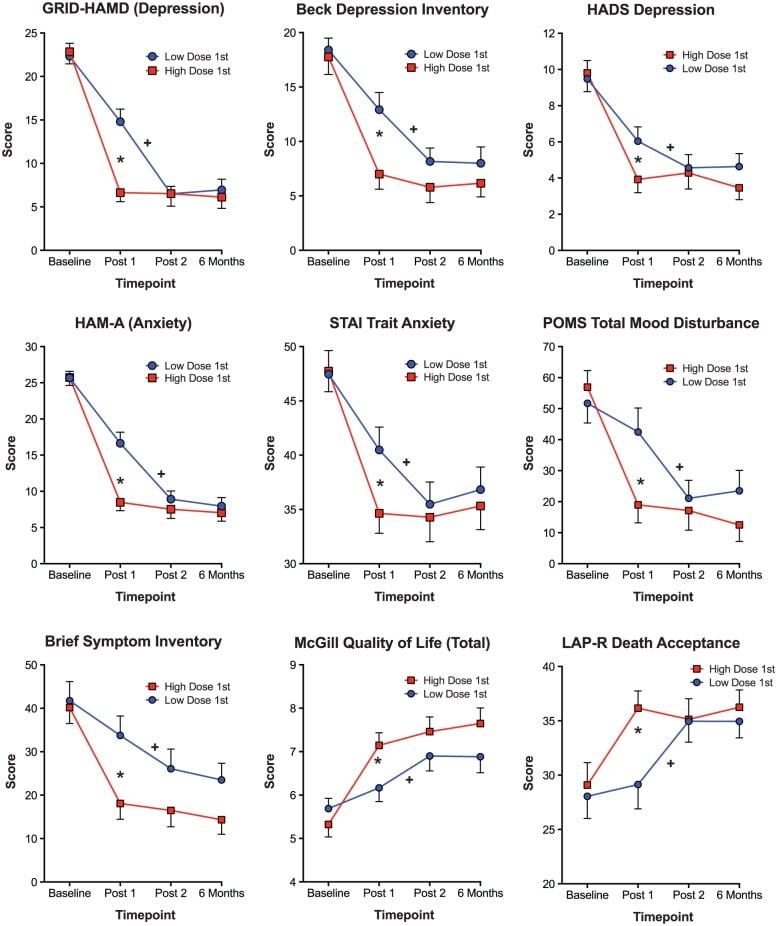
The ability for it to work for a patient in such a dire condition provides insight into its potential effects and continued research when it comes to existential anxiety, which plagues a significant amount of the global population.
The groundwork for psilocybin to be used as a treatment for anxiety has been provided, and we await large-scale, clinical trials, to better understand its efficacy, especially when it comes to dose and number of treatments/sessions.
We will continue to update when more findings are introduced!
Check out our guide to psilocybin for anxiety here.
The current state of psilocybin therapy
Psilocybin therapy and the medicinal use of magic mushrooms is in its infancy. Sure, there have been significant advancements made, especially over the past couple years, and this trend looks to be continuing for the foreseeable future.
However, there are multiple hurdles as we look towards the future of psilocybin therapy and its acceptance.
The promising part is that the FDA does recognize its potential and there are a handful of companies pushing the ball forward.
It’s important to understand that this process is going to take time. Until there is more research, we can’t say for certain that Compass’s format is the best way to administer psilocybin therapy.
There are a number of social and economic barriers that may prevent the people who would benefit most from treatment from receiving it as well. Especially as the current structure is time consuming and limited, and thus will likely be very expensive.
There will inevitably be some speed bumps, largely due to psilocybin’s current classification as a Schedule 1 drug.
Which brings us the big question…
Is psilocybin therapy legal?
Or, as many may ask, “Are magic mushrooms legal?”
The answer is no. Psilocybin, one of the two main hallucinogenic compounds of magic mushrooms, is illegal on the federal level in the United States.
However, we have seen some states and different territories loosen regulation, most notably Oregon, who legalized psilocybin for medicinal use as well as decriminalized the substance as well.
Oregon is currently the only state that psilocybin therapy is legal, provided it's done by a licensed provider and you have your own medical license to be able to receive treatment. It’s best to consult with local law enforcement and doctors to know what your options are.
Colorado is the latest state to plan for state-wide and regulated psilocybin therapy. Like Oregon, a number of processes, new laws, legislation, and more will need to be implemented before psilocybin therapy is available.
You can expect states like Oregon and Colorado to offer structured (and fully-legal) psilocybin therapy in 2024.
We have a full state-by-state directory and try to update it regularly. You can stay up to date with your current state/territory about the legal status, regulations, upcoming legislation, as well as advocacy groups near you.
Where can I get psilocybin therapy?
Colorado and Oregon expect to have psilocybin therapy available in the later part of 2024. It's unlikely that you'll find fully-legal psilocybin therapy - with US-state regulation - until then. However, some businesses may be able to assist you with self-guided psilocybin therapy in states where personal psilocybin use is decriminalized.
Businesses like Colorado-based Enduring Love offer such services, according to their site. According to their business model:
Under new State law passed by Colorado voters in Proposition 122,
practitioners at An Enduring Love are unable to:
-
-
provide psilocybin-assisted therapy until the state of Colorado has finalized the licensing requirements for healing centers and facilitators, expected to be in late 2024.
-
sell psilocybin-containing mushrooms.
-
suggest or recommend that you use psilocybin mushrooms for therapy or any other purposes.
-
Under new State law, we are able to:
-
-
offer counseling, spiritual guidance, and support services for your personal use of psilocybin.
-
If you're new to psilocybin use, please be wary of online scams, self-guided sessions, out-of-country retreats, and more. Especially if you're hoping to treat a particularly complex mental health issue. Psilocybin use can be intense, and without the proper guidance, you may find yourself in a worse situation.
Psilocybin therapy may be available to those willing to travel outside of the United States. According to tripsafe.org, the following international centers provide treatment.
-
Psychedelic Society in the Netherlands
-
Truffles Therapy in the Netherlands
-
Synthesis Retreat in the Netherlands
-
Conscious Bachelorette in the Netherlands
-
Inward Bound in the Netherlands
-
New Moon in the Netherlands
-
Psychedelic Exploration in the Netherlands
-
GuidedTripping in the Netherlands
-
A Whole New High in the Netherlands
-
Atman Retreat in Jamaica
On tripsitters.org, those who may be unable to afford a multi-day psychedelic retreat can find experienced tripsitters in Amsterdam who can help create a safe setting and guide them through a psilocybin truffle journey. Remember -- self-guided psilocybin use is NOT the same thing as psilocybin therapy. Tripsitters usually do not hold certifications, degrees, or experience dealing with complex mental health issues.
The Fireside Project operates the Psychedelic Peer Support Line, which offers free 24/7 support by phone and text message from diverse volunteers to people in the midst of psychedelic experiences and the process of integrating those experiences.
We will aim to list reputable healthcare practitioners by state in our online directory as they become available. You won't find much there now, as psilocybin therapy is still not available anywhere in the United States. In the directory, you can view your state's status, recent news, advocacy groups, and how you can make your voice heard about any pending legislation in your area.
One of the other ways you may be able to be an early patient in psilocybin therapy is by submitting your interest in being recruited in current clinical trials. Note that clinical trials also administer a placebo so there's no guarantee that you'll receive psilocybin therapy directly.
Please note: Our staff cannot connect you to psilocybin therapy clinics at this time.
IF YOU ARE A LICENSED HEALTHCARE PROFESSIONAL, OFFER PSILOCYBIN THERAPY SERVICES, AND WISH TO BE LISTED ON OUR SITE, PLEASE CONTACT US.
Stay in the loop by subscribing. You'll get news on new companies, trials, and legislation directly to your inbox. Our subscribers enjoy 100% authentic and helpful mushroom content and 0% spam or sales tactics.

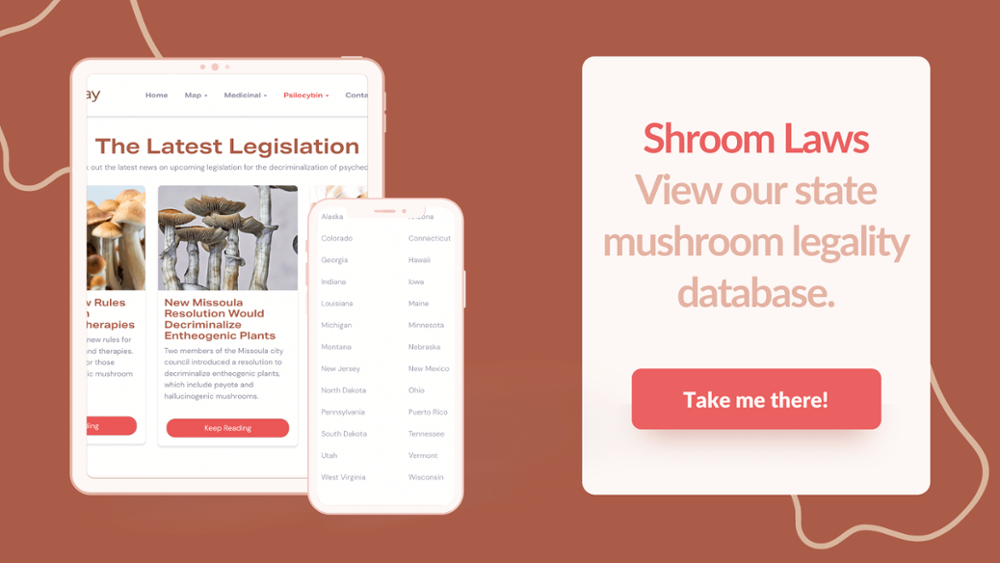
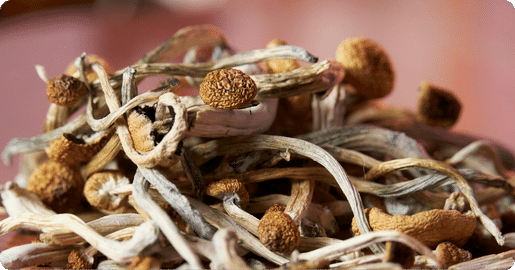
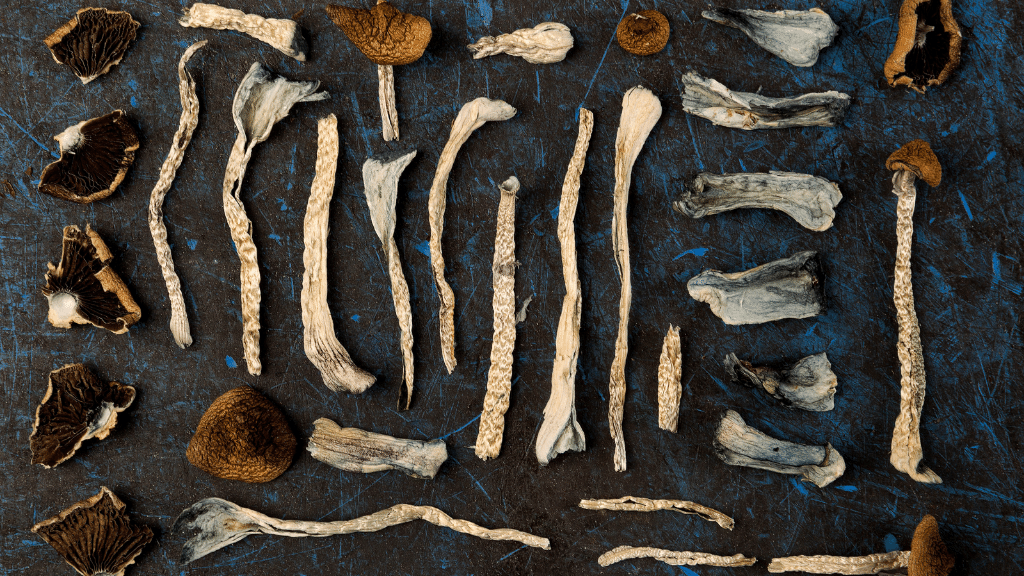


.png)
